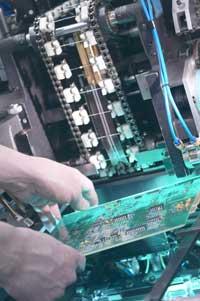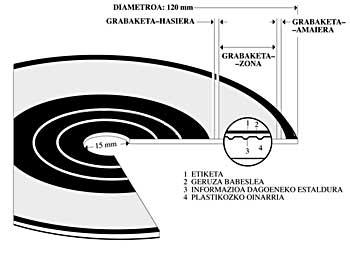Computer speed limit
2004/05/03 Kortabarria Olabarria, Beñardo - Elhuyar Zientzia
When information is being recorded on a hard drive, each of the smallest parts needed to form a bit is magnetized in one direction or another. Some of the parties will be zeros and others zeros. In order to read this information, the computer sends a pulse and restores the process of magnetism. The faster this pulse, the less time it takes to collect and read the information. Scientists wanted to know how much this pulse can be reduced.

For this purpose a particle accelerator has been used. Inside the accelerator has been placed a sample of the same magnetic material used in the manufacture of hard disks for subsequent bombardment with electrons. The energy pulses moved almost at the speed of light and remained only 2.3 picoseconds, a million picoseconds in a second. However, at this speed the flow of energy pulses was totally chaotic, which is unacceptable when it comes to accurately storing information.
Subsequently, using the same technique, scientists calculated the maximum correct data processing and recording speed, 445 billion bits per second. This means processing information 1,000 times faster than current computers. Therefore, in the coming years, increasingly fast computers will also appear on the market. But as the border is there, in order to make better computers they will have to find new materials.

Gai honi buruzko eduki gehiago
Elhuyarrek garatutako teknologia





